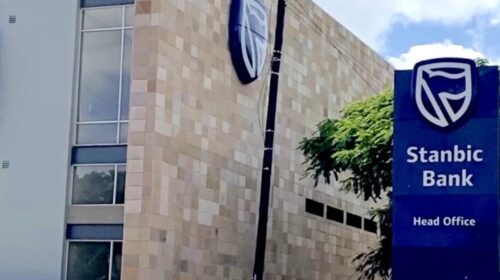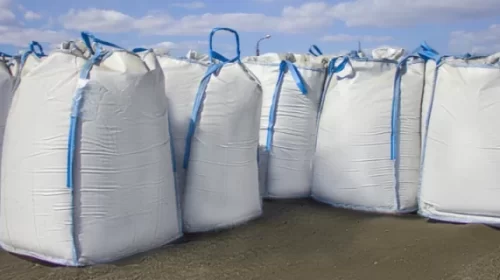Sanctioned Israeli billionaire to gain from Elon Musk cobalt deal
Elon Musk may help sanctioned Israeli billionaire Dan Gertler get a little richer.
Tesla Inc., the company Musk runs, struck a deal last month with Glencore Plc to buy as much as 6,000 tons of cobalt annually for use in the rechargeable batteries that power its electric vehicles. Glencore, in turn, is obligated to pay Gertler about 2.5% of sales from its mines in the Democratic Republic of Congo – royalty rights he acquired from state-owned miner Gecamines.
What makes the arrangement eye-catching is that Gertler has been blacklisted from the U.S. financial system since December 2017. Now he stands to indirectly benefit from an American company’s payments, if only by a few million dollars a year, since most of the cobalt Tesla is buying will come from Glencore’s Congolese mines, according to people familiar with the matter.
WHILE GLENCORE ASSURES BUYERS THAT NO HAND-DUG COBALT IS TREATED AT ITS MECHANIZED MINES, THE CONTRACT SIGNALS THAT THE METAL REMAINS KEY TO TESLA’S EXPANSION OVER THE NEXT FEW YEARS
Tesla has said it aims to eliminate cobalt from its batteries to reduce costs. That would also remove reputational hazards associated with sourcing minerals from Congo, including human rights challenges posed by artisanal mining, which provides income for millions but where fatalities and child labor are common. While Glencore assures buyers that no hand-dug cobalt is treated at its mechanized mines, the contract signals that the metal remains key to Tesla’s expansion over the next few years, even at the price of exposing itself to another risk in the central African nation: corruption.

“Buying cobalt from Glencore’s Congo projects doesn’t only raise ethical issues, it even creates legal risks for U.S. companies like Tesla since part of the money paid subsequently goes to a sanctioned entity,” said Elisabeth Caesens, director of Brussels-based transparency group Resource Matters, who has studied the Congolese mining industry for more than a decade. “Has it consulted the U.S. Treasury ahead of signing the deal about any precautions it should take under U.S. law about these payments to Gertler?”
Tesla didn’t respond to emailed questions, and Glencore and Gertler both declined to comment. A spokesperson for the Treasury Department wouldn’t discuss the Tesla contract beyond saying that it “strongly encourages” U.S. companies to develop a risk-based approach to sanctions compliance.
U.S. companies are barred from doing business with sanctioned entities, such as Ventora Development Sasu, the Gertler company that receives royalties from Glencore’s mines in Congo. But Tesla’s contract is with Glencore, which is based in Switzerland.
Sanctions experts offered differing views of the legal risk for a company in Tesla’s situation, with some saying the arrangement probably doesn’t run afoul of the rules and the prospect of a U.S. enforcement action seems remote. Others said they thought Treasury might take a harder line.
In sanctioning Gertler, the U.S. said he had used his friendship with former President Joseph Kabila to act as a middleman for multinational companies to acquire mining operations in Congo and had profited from “opaque and corrupt” deals – allegations Gertler has denied. Earlier this month Bloomberg News reported on financial transactions among a network of companies and individuals that emerged in Congo largely after the sanctions were imposed and that raise questions about whether they somehow enabled Gertler to continue doing business there. Gertler’s lawyers said he didn’t have any business dealings with, or even know, most of the individuals and denied he was engaged in sanctions evasion.
Almost three-quarters of the world’s cobalt comes from Congo, where Glencore owns two of the largest mines, and demand is forecast to surge in coming years, driven by electric-vehicle sales.
Direct deals between miners and auto manufacturers are rare. Glencore, the world’s biggest producer of cobalt, has other long-term contracts with non-U.S. companies in the middle of the battery supply chain, including Belgium’s Umicore SA, South Korea’s Samsung SDI Co. and China’s GEM Co. Some U.S. companies, including Apple Inc., source cobalt products from these suppliers, according to reports published last year.
Glencore halted royalties to Gertler in response to the sanctions but resumed paying in euros in mid-2018 to resolve a lawsuit filed by the businessman. On the day Glencore announced its decision, the U.S. designated an additional 14 companies controlled by Gertler, including Ventora.
At the time, Glencore said it had discussed the matter with U.S. and Swiss authorities but declined to confirm whether Treasury approved the decision. Meeting contractual obligations to Gertler was the company’s “only viable option to avoid the material risk of seizure” of its mines, the company said two years ago.
Less than three weeks after Glencore restarted paying royalties to Gertler, the U.S. Justice Department subpoenaed the company to produce documents relating to possible corruption in Congo, Nigeria and Venezuela. Authorities in the U.K. and Switzerland also have opened investigations. Glencore has said the Swiss probe concerns the company’s alleged “failure to have the organizational measures in place to prevent alleged corruption in” Congo, and that it’s cooperating with authorities in all three countries.It is unclear to what extent the investigations may focus on Glencore’s relationship with Gertler.
Gertler’s rights to royalties from two copper and cobalt mines in Congo are his only known remaining financial ties to the world’s biggest commodity trader. After a decade as joint venture partners, Glencore bought out Gertler’s minority stakes in both projects in early 2017.
Of Glencore’s Congolese assets, only one, Kamoto Copper Co., is currently operating. On track to become the world’s largest cobalt mine, it will be the source of most of the metal Tesla buys, at least until Glencore’s second site reopens.
GLENCORE HALTED ROYALTIES TO GERTLER IN RESPONSE TO THE SANCTIONS BUT RESUMED PAYING IN EUROS IN MID-2018 TO RESOLVE A LAWSUIT FILED BY THE BUSINESSMAN
While Gertler’s ownership of the Kamoto royalties was known, how much he paid for them hasn’t previously been reported. Gertler obtained the rights to 2.5% of Kamoto’s net sales in May 2013 in exchange for a $150 million reduction in debt owed to one of his companies by Gecamines, Gertler’s lawyers wrote in a Feb. 3 letter to Bloomberg News in response to questions about the deal.
In January 2015, Gecamines decided not to exercise an option to buy back the rights and instructed Kamoto to assign the royalties permanently to Gertler, according to his lawyers and a copy of the contract. Gecamines, which didn’t reply to questions, still owns 25% of the mine.
Soon after the royalties were transferred, Kamoto advanced $54.7 million to Gertler’s company, and then shut the mine for two years to upgrade equipment. The advances were offset by the end of last year, and Kamoto was supposed to resume royalty payments to Gertler early this year, according to a report published in February by the Glencore subsidiary that controls the mine.
Gertler also benefited from the settlement two years ago of a dispute between Glencore and Gecamines that arose after the state miner threatened to dissolve Kamoto over its debt levels. As well as Glencore writing off billions of dollars of loans, Kamoto waived rights to compensation for deposits it had ceded to Gecamines by holding back royalties and dividends starting in 2019. Since the royalties had been transferred to Gertler, he stands to earn them uninterrupted until Kamoto is depleted.
Gertler could reap far more than he paid for the rights. In the lawsuit he initiated in 2018 after Glencore paused the flow of royalties, Gertler said they were worth $2.3 billion – about 15 times what he agreed to buy them for.
Glencore’s goal is for Kamoto to produce an average of 300,000 tons of copper and 30,000 tons of cobalt each year from 2022 until the end of the mine’s life, expected to run for more than 20 years, according to company statements. Last year Kamoto generated $1.39 billion in revenue on output of more than 230,000 tons of copper and 17,000 tons of cobalt.
At the average price over the past year, it would cost Tesla about $191 million to buy 6,000 tons of cobalt, putting Gertler’s annual royalties from the contract at between $4 million and $5 million.
Source: Bloomberg News





